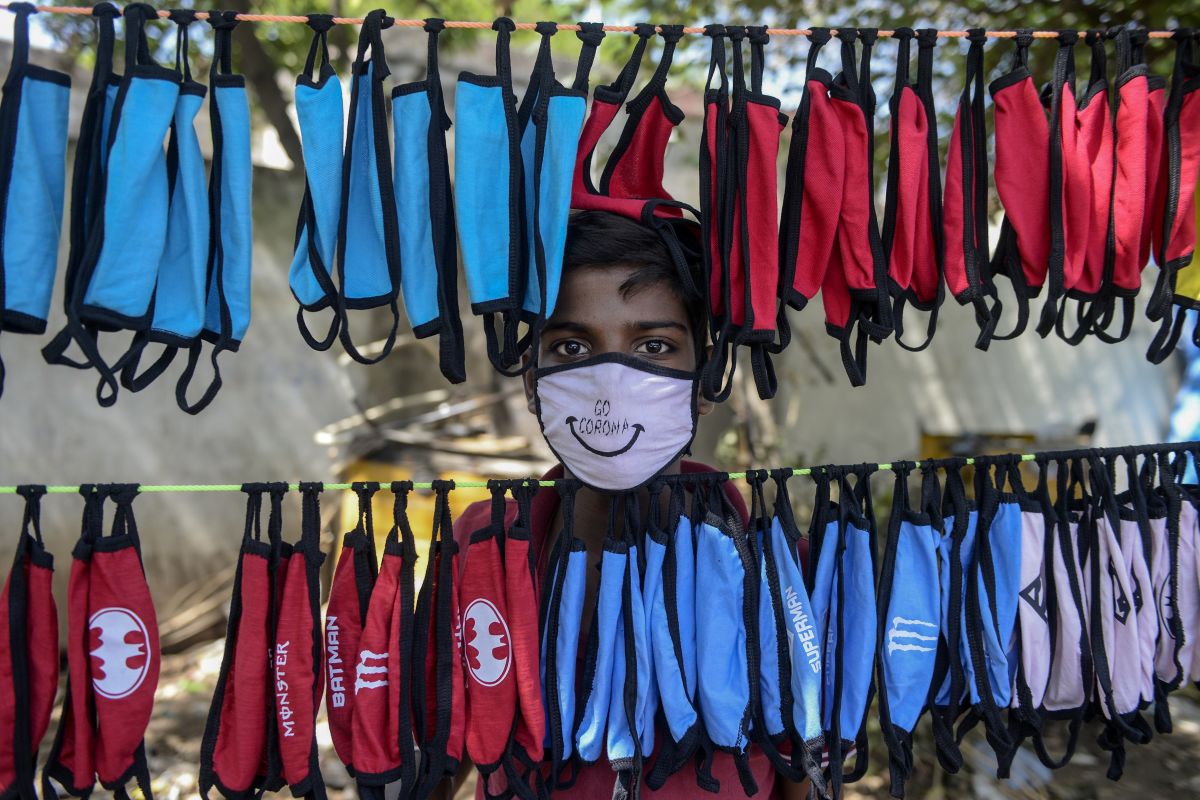China Retirement
China's move to raise the retirement age, the first adjustment since the 1950s, is a critical response to an escalating demographic and economic crisis.
The Tamil Nadu government of Edappadi Palaniswami welcomed with alacrity compulsory wearing of facemasks and implemented it in double quick time.

A street vendor poses as he arranges facemasks to sell on the roadside as a preventive measure against the spread of the COVID-19 coronavirus on the outskirts of Hyderabad on June 5, 2020. (Photo by NOAH SEELAM / AFP)
In the Unlock Phase 1 of the Covid-19 pandemic, universal adoption of facemasks has been made mandatory. Population-level use of facemasks is said to have a substantive impact on reduction of Covid-19 spread, according to recent mathematical model research carried out by Cambridge University and another reputed British institution.
The researchers say that masks can even be home-made and still be effective in preventing transmission of the virus. On 29 May, the World Health Organisation announced that masks should only be worn by healthy people if they are taking care of someone infected with Covid-19.
Advertisement
A person not having any respiratory symptoms such as fever, cough or runny nose need not wear a mask, said Dr April Baller, a public health specialist for WHO in a video posted on WHO’s website in March. “Masks should only be used by healthcare workers, caregivers or by people who are sick with symptoms of fever and cough.”
Advertisement
A surgical mask has a three-ply structure, a waterproof back and front layers and a submicron, non-woven, porous fabric middle layer. It protects the wearer from coming in contact from droplets from those infected and it is meant only for health workers. But the public can use reusable cloth masks. Most of the masks people are wearing are not only ineffective at preventing the spread of Covid-19, but can actually harm the wearer, according to medical research.
Dr Russel Blaylock, a reputed neurosurgeon of the USA, explains that by wearing a mask, exhaled viruses will not be able to escape and will concentrate in the nasal passages, enter the olfactory nerves and travel into the brain. If a mask is worn for hours, it can reduce blood oxygenation by as much as 20 per cent which can lead to loss of consciousness.
The Tamil Nadu government of Edappadi Palaniswami welcomed with alacrity compulsory wearing of facemasks and implemented it in double quick time. A spot fine of Rs 500 is levied if anyone steps out of his house without a facemask. The police are only too happy to implement the government order.
The pollution control officials, on the other hand, are at their wits end monitoring disposal of medical garbage generated by the Covid-19 pandemic. The Education Department has thrust three masks each on nine lakh students while collecting hall tickets for the Standard X final examination which was never held.
The Civil Supplies Department is planning to distribute free facemasks to each ration card holder in the State, numbering more than two crore. Apart from the dubious utility of these masks, the government has to spend huge sums on safe disposal of used masks posing health hazards to garbage collectors.
The streets of Chennai, as indeed other cities, are strewn with discarded facemasks which are neither recyclable nor biodegradable. Before long the nation will find itself with a mountain of used masks, some with infection and most without any, as 138 crore people are forced to wear masks.
Advertisement